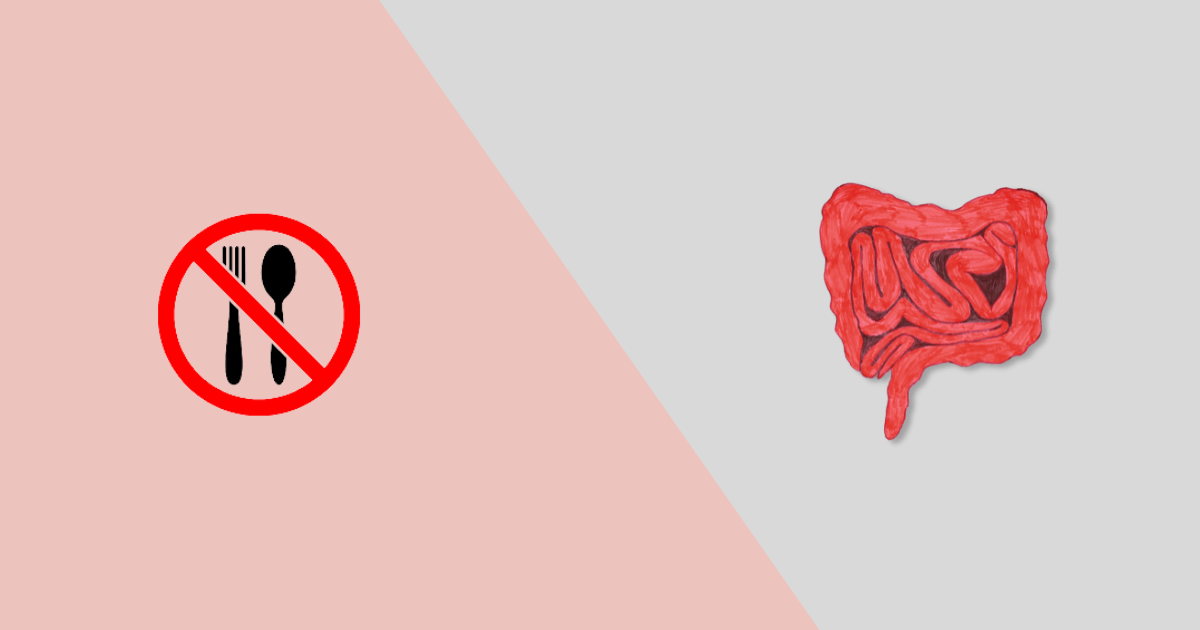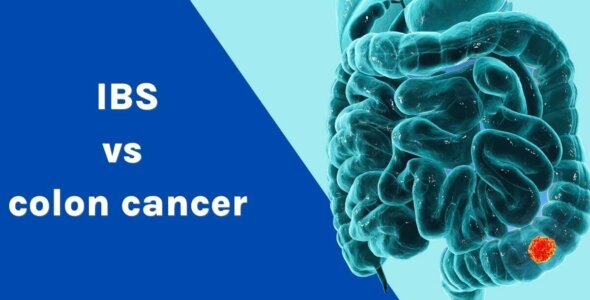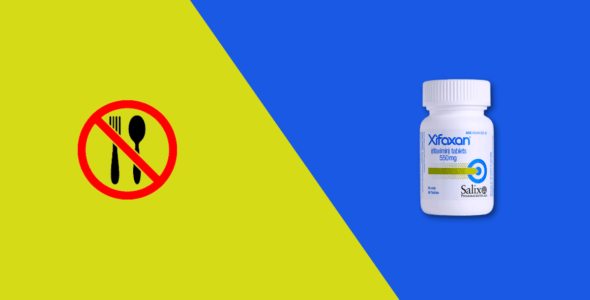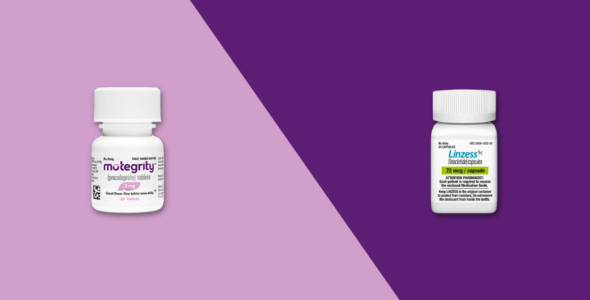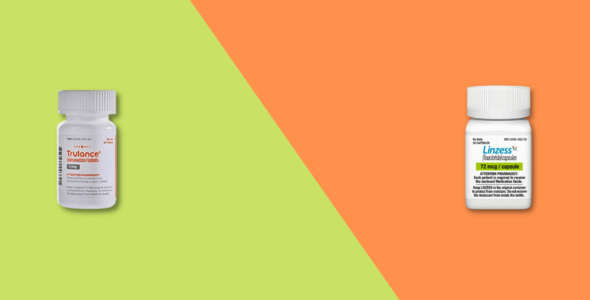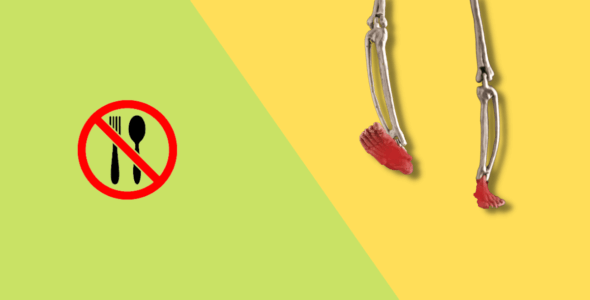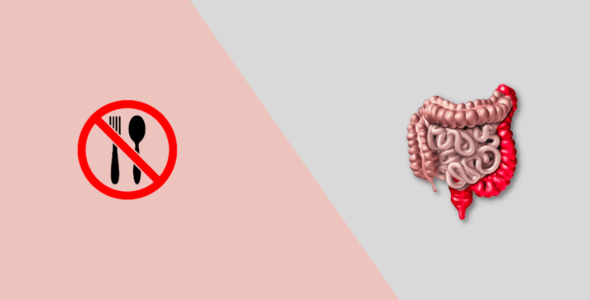What foods to avoid with IBS
Table of contents
Irritable bowel syndrome (IBS) is a common gastrointestinal disorder affecting 10% of the population in the United States each year. Symptoms of IBS include cramping, diarrhea, flatulence, and bloating.
Here we will look at what irritable bowel syndrome is, its symptoms, which food triggers IBS and so to avoid, as well as what foods you can eat, and treatments available to improve your quality of life.
What is IBS?
IBS is thought to be caused by a problem in how your gut and brain work together causing your digestive tract to be very sensitive. This causes abdominal pain, diarrhea, and constipation. IBS is classified depending on your type of bowel movement problems.
- IBS with constipation (IBS-C)
- IBS with diarrhea (IBS-D)
- IBS with mixed bowel habits (IBS-M)
What kind of IBS you have will determine what treatment will work best for you.
Symptoms of IBS
Symptoms of IBS will vary for each individual, depending on the type of IBS you have. General symptoms will include:
- Abdominal pain
- Bloating
- Cramping
- Diarrhea
- Constipation
- Flatulence
- Passing mucus
- Feeling tired
- Nausea
- Backache
- Difficulty urinating
- Bowel incontinence
Medication for IBS
Medications given to you by your doctor will be based on the type of IBS you have and your symptoms. Examples of medications for IBS include:
- Lotronex – relaxes your colon and slows the passage of waste through your lower bowel. Lotronex is for severe cases of IBS-D in women who haven’t responded well enough to other treatments
- Viberzi – reduces diarrhea by decreasing muscle contractions and fluid secretion in the intestine
- Xifaxan – decreases bacterial overgrowth and diarrhea
- Amitiza, Linzess – increases the secretion of fluid in your small intestine to help with the passage of stools in women with IBS-C who haven’t responded to other treatments
Discuss what the most effective treatment option is for you with your healthcare provider.
Foods to avoid
The general principle for any diet plan is to eat a healthy balanced diet. Foods to avoid that trigger attacks and cause flare-ups include:
- Food containing lactose such as dairy products. These include cow’s milk, yogurt, ice cream, and cheese. Chocolate and candy can also trigger IBS as they contain fat, lactose, and caffeine
- Fruits – apples, pears, cherries, mangoes, watermelon, and dried fruit
- Honey, agave nectar, high fructose corn syrup
- Artificial sweeteners such as sorbitol, mannitol, xylitol, maltitol, and isomalt found in sugar-free gum and mints
- Cruciferous vegetables – artichokes, asparagus, brussels sprouts, cabbage, garlic, and onions
- Grains such as wheat and rye
- Legumes – chickpeas, lentils, kidney beans, and soy products
- Insoluble fiber – bran, whole grains, nuts, and the skins of fruits and vegetables
- Starches common in partially baked bread, and processed foods such as potato chips
- Fried food
What foods can I eat?
Foods you can eat include:
- Lactose-free milk, almond milk, coconut milk
- Lactose-free yogurt
- Hard cheeses such as feta and brie
- Yogurt containing probiotics
- Soluble fiber found in beans, fruits, and oat products helps to regulate bowel movements
- Bananas, blueberries, grapefruit, kiwi, lemon, oranges, and strawberries
- Vegetables such as bean sprouts, carrots, cucumbers, eggplant, ginger, lettuce, potatoes, spring onions, and turnips
- Food containing protein – beef, pork, chicken, fish, and eggs
- Nuts – almonds, peanuts, pine nuts, and walnuts
- Gluten-free pasta
- Corn flour, and quinoa
- Whole grains like rice and oats, but not whole-wheat flour like bread, pasta, and cereal
- Low-FODMAP vegetables – green beans, spinach, squash, and sweet potatoes
IBS diet plans
A handy tip is to keep a food journal to help identify the foods that are your triggers. Essentially those foods that bring about an attack. Your food journal should allow you to make decisions about which foods you should or should not eat. Useful information to include in your journal would be:
- The foods you have eaten
- The date and time
- What reactions you have had
- When you had flare-ups or worsening symptoms
- Any stressful events or periods of anxiety that bring about flare-ups
Food journals are useful when you’re looking to add certain foods to your diet. Add one food at a time and record your symptoms. This way you can see if a certain food is suitable or not.
Your diet plan should include:
- Foods to eat and avoid
- How to modify foods rather than avoiding them completely. Peeling or cooking a fruit or vegetable might make all the difference and may mean you do not miss out on essential nutrients needed for a healthy balanced diet
- Supplements you can take to replace any nutrients you cannot get in your food. Speak with a registered dietitian or nutritionist about which supplements are suitable for you
- Meal plans – these will help you to stick to foods that do not make your symptoms worse
- Any advice given to you by your doctor or dietitian
Your symptoms of IBS may change over time, so it is important to keep a track of these changes. Record and review changes in your diet and speak to your healthcare provider if flare-ups become worse or occur more often than usual.
Premade diet plans such as the low FODMAP diet are available and can be beneficial. However, as mentioned before, we are all different, and what works for me may not work for you. Speak to your nutritionist or a registered dietitian to develop a healthy eating plan and to discuss other lifestyle changes you can make to manage your condition better.
What is the low FODMAP diet?
FODMAP stands for Fermentable Oligosaccharides, Disaccharides, Monosaccharides And Polyols. These are fermentable, short-chain carbohydrates.
- Oligosaccharides – fructans and galacto-oligosaccharides (GOS)
- Disaccharides – lactose
- Monosaccharides – fructose
- Polyols – sorbitol and mannitol
It has been found that foods classed as FODMAPs are not absorbed well in the small intestine. They have been found to increase the amount of fluid in the bowel and make you gassier. This leads to bloating, pain, and diarrhea.
It has been shown that a low FODMAP diet will help improve IBS symptoms with studies showing that over 70% of patients following the low FODMAP diet had some improvement, and those who continued to eat high-FODMAP foods were more likely have flare-ups.
Speak to a registered dietician to make sure you have a safe and healthy eating plan, and to discuss other lifestyle changes you can make to improve your quality of life.
Medically reviewed
A medical professional has reviewed this article.


Jamie Winn, PharmD
Jamie Winn, PharmD
Dr. Jamie Winn received his Doctor of Pharmacy in 2002 from the University of South Carolina College of Pharmacy, Columbia, SC. Jamie is a medical reviewer for NiceRx.

